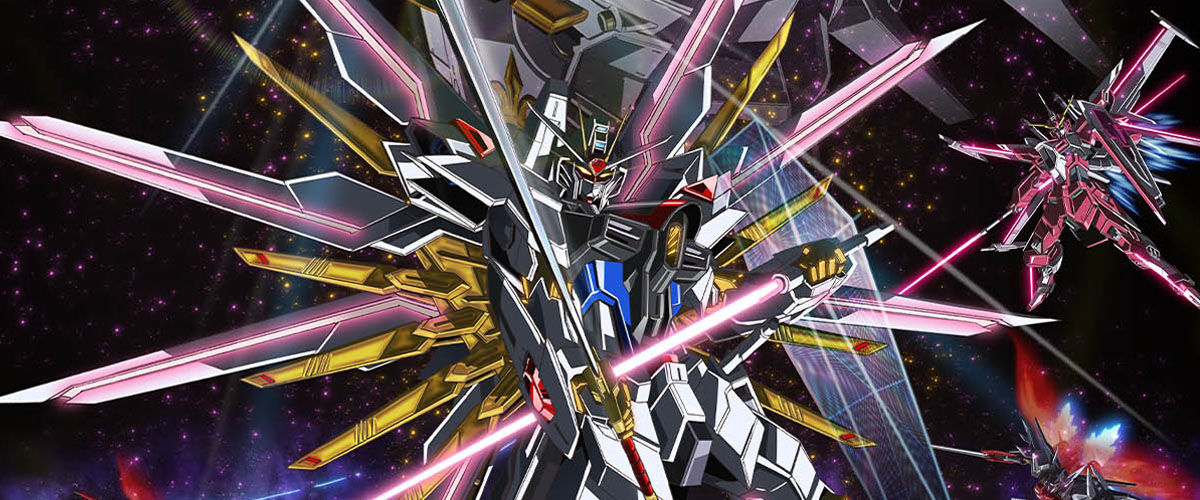As the Gundam franchise continues to breathe and live mecha, it’s easy to see how far the military sci-fi series has come over the years. The popular cross-generational property got off to a rocky start with 1979’s Mobile Suit Gundam, but is now an anime heavyweight in its own right – one that’s willing to tread on uncharted waters, as seen from its first mainline leap into LGBTQ+ and female protagonist representation in the latest The Witch from Mercury series.
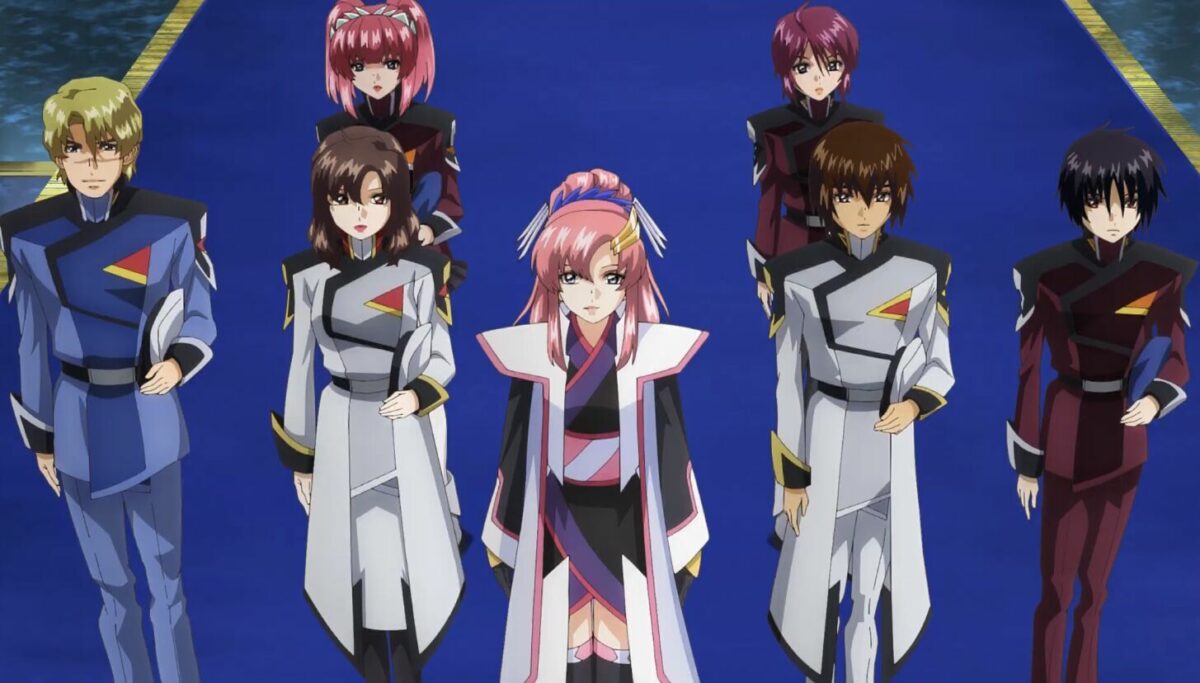
More notably, it’s no longer chained down by the shackles of being a niche title – between political themes, mecha battles, and heavy war overtones, the Japanese franchise was thought to be tailored for a specific taste. Yet, Mobile Suit Gundam Seed proved naysayers wrong when it burst into the mainstream scene in 2002, unleashing the mass appeal and narrative potential that had long been simmering beneath.
22 years on, the show’s legacy still flows through the veins of Mobile Suit Gundam Seed Freedom. The 126-minute animated film, coming out of a long-gestating phase, marks a welcome return to a beloved fan-favourite and revisits the elements of what made the classic so celebrated in the first place. Coupled with a heavy dose of nostalgia, the mecha epic promises an enjoyable action spectacle, especially for old fans, amid some slight misgivings about plot and characterisation.
A sequel to both Mobile Suit Gundam Seed and its 2004 follow-up Seed Destiny, it dives back into the Cosmic Era (more specifically, C.E. 75), where the fighting between the Earth-born Naturals and the genetically-engineered Coordinators continue to rage on. To alleviate the situation, the world peacekeeping organisation Compass – helmed by the show’s protagonists with Lacus Clyne (Rie Tanaka) as president – enters negotiations with the Emerging Countries Foundation against Blue Cosmos, the most radical of the anti-Coordinator activist groups.
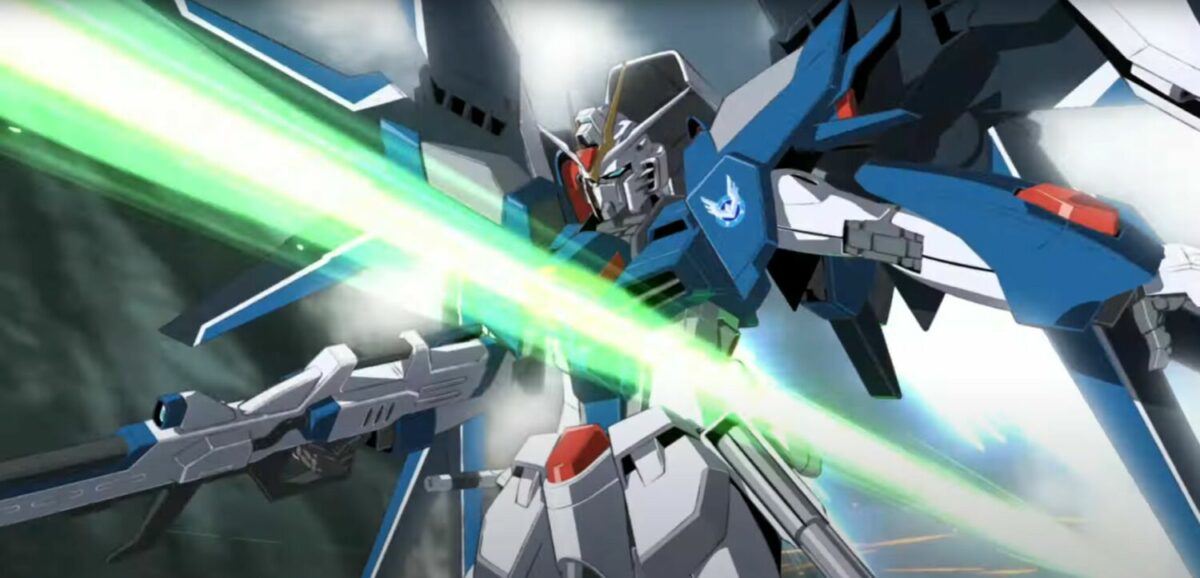
There’s another faction, however, pulling strings in the shadows amid the warring and peacekeeping efforts, which adds another layer to the friction. It’s a brand of political intrigue that resonates with the larger Gundam universe, playing into the franchise’s exploration of war, loss, and destruction. At the same time, Kira Yamato (Soichiro Hoshi) is worn down by the conflict, as he continues to shoulder the emotional burden – sparing his comrades the pain – despite growing increasingly tired of the bloodshed and killing.
In that sense, Mobile Suit Gundam Seed Freedom is more of a character study than a plot-driven space jaunt. The emotional chinks in Kira’s armour lends a more vulnerable and human touch to his poster-boy, self-righteous portrayal in Seed Destiny, accentuated by his sense of responsibility, guilt, and relationship woes with girlfriend Lacus. As the Freedom Gundam pilot grows to rely on his comrades, the movie revisits several familiar tropes that culminate into a core theme: pre-determination versus free will.
It’s a neat way to tie back to its predecessors and the larger eugenics argument. To recap, the Destiny Plan, an obvious nod to its title, was announced by antagonist Durandal, serving as a social system designed to provide each person with a job that best suits them based on their genetic structure. Kira and the other pilots, naturally, reject the notion, and instead choose to fight for free will.
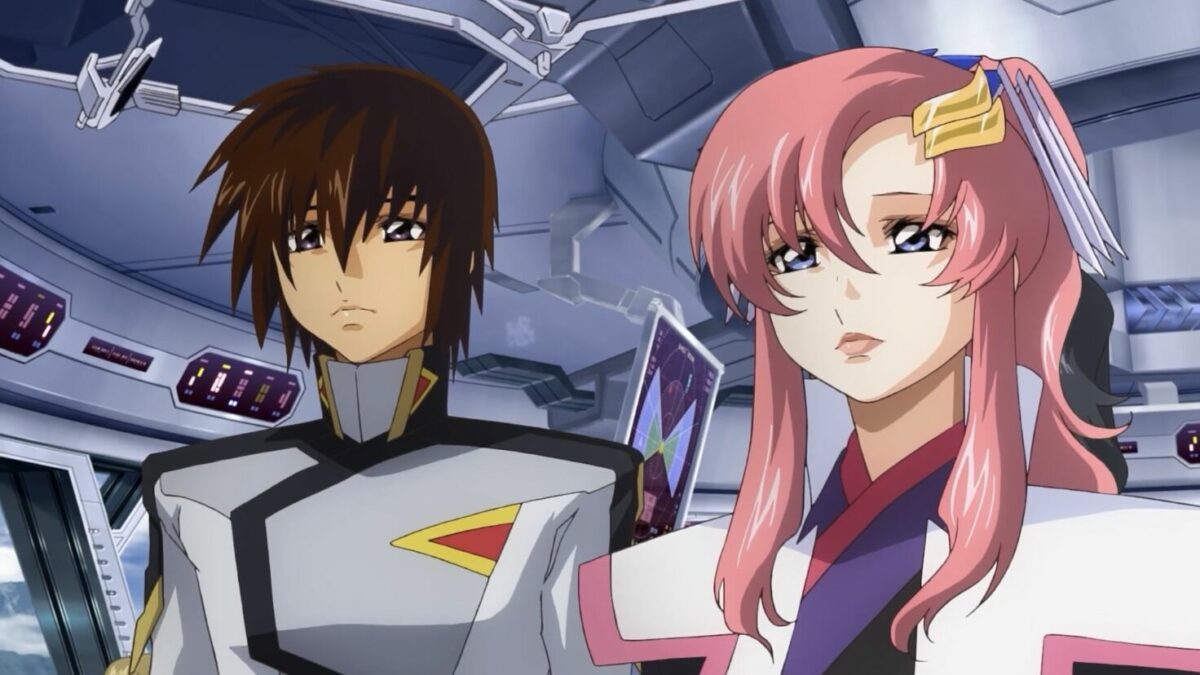
Joining the lead pair are returning characters from both Gundam Seed and Seed Destiny, as well as new faces exclusive to the film. Shinn Asuka (Kenichi Suzumura) largely steps in as comic relief, with Lunamaria Hawke (Maaya Sakamoto), Hilda Harken (Michiko Neya), Mu La Flaga (Takehito Koyasu), Murrue Ramius (Kotono Mitsuishi), and Cagalli Yula Athha (Nanako Mori) all getting their moments on the big screen.
On the note of Cagalli, her boyfriend Athrun Zala (Akira Ishida) – despite being the deuteragonist of both Seed and Seed Destiny – plays a smaller role here, but it’s still great to see the band back together after two decades, especially with how they all fit nicely into the key narrative one way or another.
Elsewhere though, the characterisation is a mixed bag. While most of the female characters have a strong presence and ooze cool charm on the big screen, the same cannot be said for new additions Agnes Giebenrath (Houko Kuwashima) and Ingrid Tradoll (Sumire Uesaka). The former feels unnecessarily shoehorned in for the sole purpose of causing romantic drama, and her abrasive, superficial personality doesn’t exactly help, either.
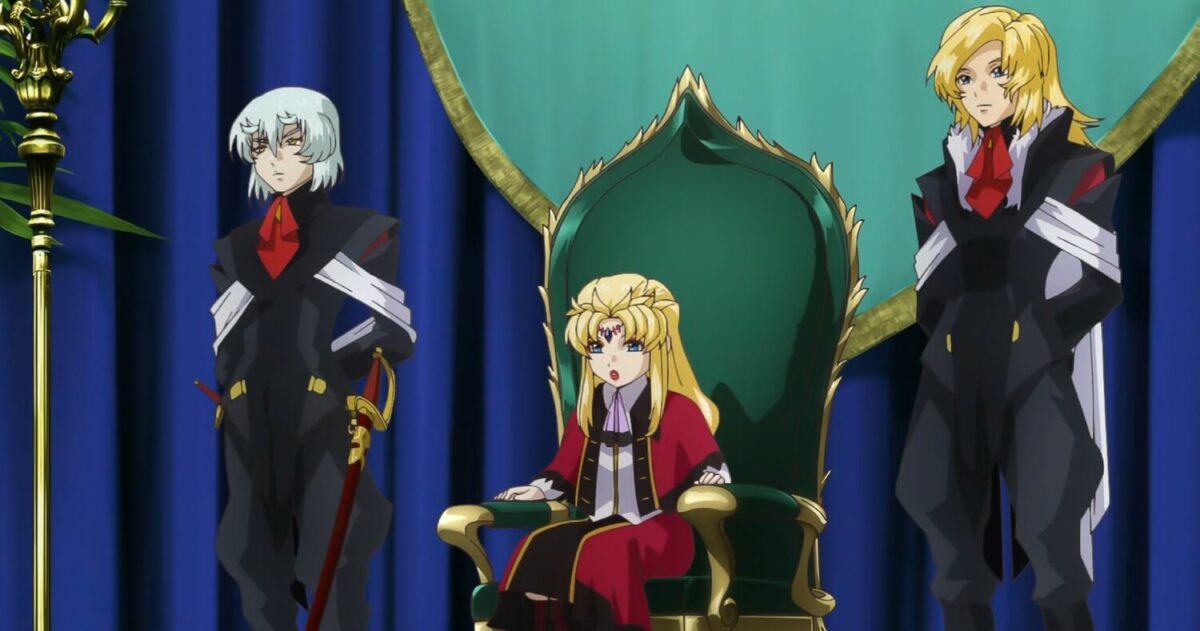
In the same way, Ingrid has potential to grow as a character, but remains one-dimensional for the most part. The villains aren’t particularly interesting or memorable, too, even if some of them boast interesting designs. Orphee Lam Tao (Hiro Shimono), another new character, enjoys quite a bit of screen time and is more fleshed out; even so, he fails to make a strong impression.
Of course, it can be argued that the difference is deliberate, as Ingrid and Orphee act as the foils to Kira and Lacus. However, there are ways to do so without having to downplay their depiction, and this inconsistency extends to the main cast – there are times where Lacus’ actions and behaviour seems to chafe against her established character in the original, too.
Since it builds on an older series, Mobile Suit Gundam Seed Freedom occasionally slips in some cheesy writing and dated or adolescent jokes that longtime fans will likely find endearing, but new viewers will surely regard as awkward. There are also plot holes within the larger narrative, but let’s be honest here – nobody goes into a Gundam film expecting it to be a storytelling masterpiece.
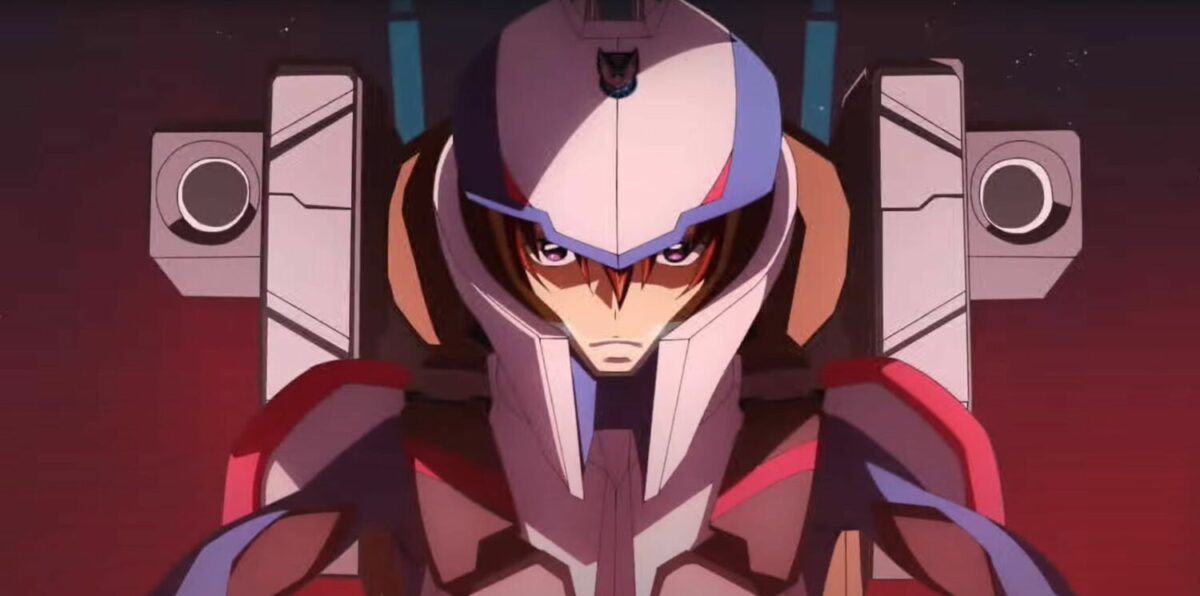
Fan service, in the animated feature, comes in both jiggly and non-jiggly varieties. The former takes the form of skin-tight suits, typically worn by Lacus, and lingering shots of these scenes, which can feel out of place tonally. The latter, meanwhile, is more than welcome, as it represents the beating heart of the entire franchise: the mecha themselves.
Joining Kira’s iconic Freedom Gundam in battle are a host of both familiar and new robots, all mighty and striking in their own way. As expected of a Gundam title, fights continue to be glorious, dynamic, and enthralling, with the crisp sound mixing lending weight to laser beams, close combat clashes, and sharp maneuvers. This new coat of paint makes everything sound and look better than before, falling in line with the modern standard of aesthetics.
More notably, the shift to CGI has paid off handsomely. It’s clear that a lot of care and effort went into the fluid animation, which blends in nicely with the 2D visuals. The music also shares the same amalgamation of nostalgia and novelty, featuring remixed tracks from Gundam Seed and new songs from the original artists.
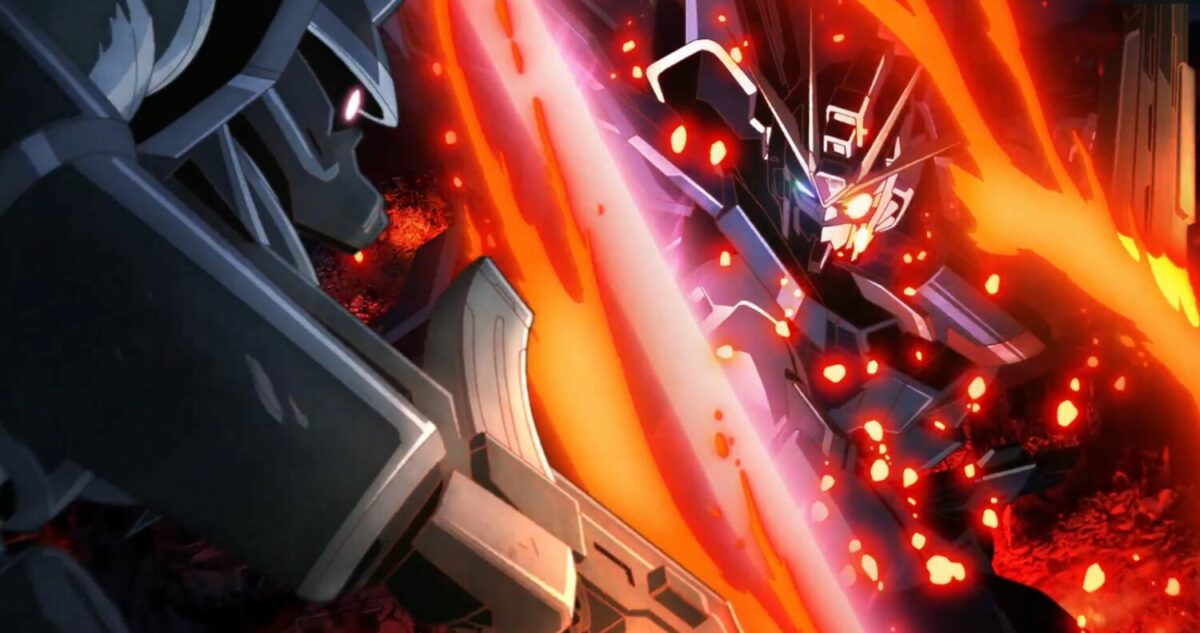
As the saying goes, good things come to those who wait. Mobile Suit Gundam Seed Freedom, after finally leaving its long-gestating status, makes it clear that it’s a film for fans, unashamedly basking in both the good and weaker parts of Gundam Seed and Seed Destiny. The sequel inherits the same spirit of its predecessors, but finds a more personal core this time that compensates for its other flaws, and also improves on the oft-critiqued execution of Seed Destiny. It’s about as Gundam Seed as things can get, and returning enthusiasts will likely delight in the nostalgic trip.
GEEK REVIEW SCORE
Summary
If there can only be one Gundam Seed movie, let it be this – Mobile Suit Gundam Seed Freedom is a patchwork of love, careful attention, and respect for the original that promises a warm homecoming for old fans.
Overall
7.5/10-
Story - 7/10
7/10
-
Direction - 7.5/10
7.5/10
-
Characterisation - 7.5/10
7.5/10
-
Geek Satisfaction - 8/10
8/10

